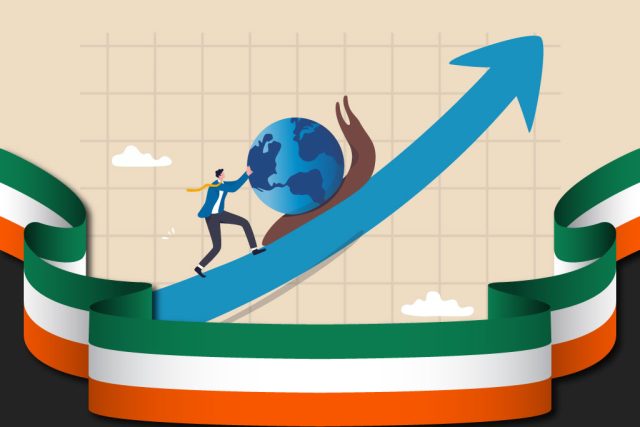According to IMF projections, India has overtaken the U.K. to become the world’s fifth-largest economy and is now behind only the U.S., China, Japan, and Germany. A decade back, India was scored 11th among the biggest economies while the U.K. was fifth. However, with record beating expansion in the April-June quarter, the Indian economy has overtaken the U.K., which has dropped to the sixth spot. The article is about India Surpassed U.K. To Become 5th Largest Economy.
India has a population 20 times that of the United Kingdom, so its GDP per capita is lower. Nevertheless, its GDP developed by 13.5% in the April-June quarter, the quickest pace each year, to retain the world’s fastest-growing economy tag. But increasing interest costs and the looming threat of a recession in significant world economies could slow the momentum in the upcoming quarters. Gross Domestic Product growth of 13.5% year-on-year compared to a 20.1% expansion a year back and 4.09% increase in the previous three months to March, according to official data.
Although lower than the Reserve Bank of India (RBI) estimate of 16.2%, the growth was fuelled by consumption and warned of a revival of domestic demand, especially in the services industry. Pent-up demand is operating consumption as consumers are stepping out and spending after two years of pandemic restrictions. As a result, the services industry has seen a strong bounce back that will get a boost from the festival season next month. But the slowing growth of the manufacturing industry at 4.8% is an area of worry. Also, imports being higher than exports is an issue of concern.
An uneven monsoon is similar to weigh upon agriculture growth and rural demand. The GDP print will, however, permit the RBI to focus on controlling inflation that has stayed above the comfort zone of 6% for seven straight months. The central bank has developed the benchmark policy rate by 140 basis points in three installments since May and has committed to do more to bring inflation under control. Besides tighter monetary requirements, Asia’s third-largest economy faces headwinds from higher energy and commodity expenses that are to weigh on consumer demand and companies’ investment plans.
Moreover, consumer spending, which accounts for nearly 55% of economic activity, has been hit highly by soaring food and fuel prices. The GDP growth in the first quarter of the latest fiscal was increased more than China’s 0.4% expansion in April-June.
To read more Economical news, Please Click Here!

















